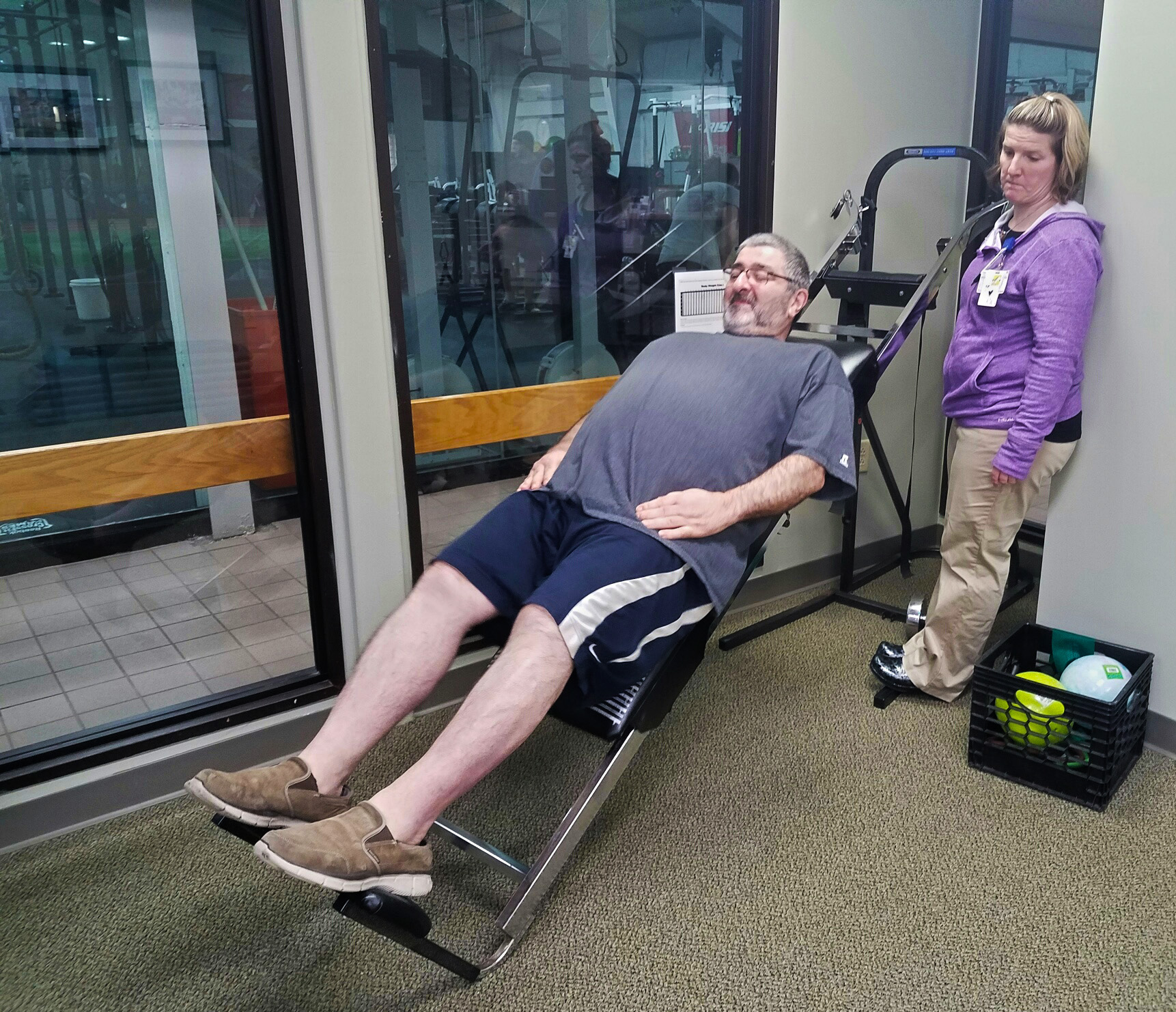Meet Haverhill’s miracle man. ‘Nothing short of a miracle’ that he’s walking again, doctor says.
We want to share this inspiring story of one of our patients, Milton Taylor. His story of recovery is a testament to the exceptional care available locally in the Merrimack Valley.
By Breanna Edelstein, Eagle Tribune
Feb 12, 2017
HAVERHILL — Ask Milton Taylor how he regained the ability to walk nine months after being told he likely never would, and the 63-year-old tearfully starts talking about his own determination and the region’s talented doctors.
Since May, Taylor has been under the care of professionals across the Merrimack Valley — at Holy Family Hospital, Northeast Rehabilitation Hospital, Hannah Duston Healthcare Center and New England Neurological Associates — for treatment of a debilitating spinal abscess.
The cause of Taylor’s inflamed spinal cord tissue remains a mystery, but Dr. Jennifer Grillo of NENA in Lawrence is certain of one thing — she was lucky to have spotted it on a hazy scan in front of her late one night last year.
“This was a tough case. Several doctors who looked at the scans earlier had trouble finding anything wrong,” she said. “But once you saw it, it was shocking.”
When rare abscesses occur, they usually span a few vertebrae and lead to paralysis. Taylor’s scan, however, revealed a mass that took over nearly 30 percent of his spine. The buildup is also known to cause strokes and severe infections.
Grillo immediately sought the help of Dr. K. Sadashiva Karanth, a neurological surgeon. Both doctors agreed they had never seen a case like it, and likely never will again.
“It is nothing short of a miracle that Milton is walking, driving and working now,” Karanth said. “I call him my miracle child.”
Before being wheeled into an operating room, Taylor, a lifelong Haverhill resident, told his primary doctor he had flu-like symptoms and leg pain. Taylor was sent home to rest, but the pain spread and he was immobile several days later.
 “From then on, I only remember the possibility of an MRI,” Taylor said. “There’s a blank spot in my memory. Next thing I knew, I was waking up in a recovery room five days later. I didn’t even know I had a scar down my back. I didn’t know they had done surgery.
“From then on, I only remember the possibility of an MRI,” Taylor said. “There’s a blank spot in my memory. Next thing I knew, I was waking up in a recovery room five days later. I didn’t even know I had a scar down my back. I didn’t know they had done surgery.
“No one could tell me if I’d ever walk again,” he said. “Everything was so unclear.”
Through hourly rounds of antibiotics, constant introductions to new doctors and physical therapists, and a wavering will to keep fighting, Taylor often thought of a condominium he frequents in Florida.
He was unable to sit up on the side of a hospital bed without help, showering alone wasn’t an option, and the thought of boarding a plane seemed unlikely. But vacationing on the beach felt like a palpable dream, Taylor said.
“At one point, I wasn’t eating. I wasn’t drinking. I wasn’t myself at all,” he said. “But a friend of mine came in one day with a printed picture of that place in Florida. I hung it on the wall and looked at it every day for motivation.
“I wasn’t going to just sit back,” he said. “I knew I would walk again from that moment on. I’d get back to Florida.”
Taylor spoke of his friend Bruce Bennett and two adult children who have helped with rides to doctor appointments and keeping Taylor’s morale up through lighthearted cribbage games.
Karanth said that months of dedicated therapy — in a swimming pool and traditional medical office — along with a strong support system were crucial to Taylor’s recovery.
“He caught onto it very quickly,” Karanth said. “He was working so hard. A lot of it is due to motivation. Kudos to him for having that drive.”
Taylor describes setting, and meeting, milestones for himself — walking to the end of a hallway, to the end of the pool and up a few stairs.
“I didn’t know if I should laugh or cry after completing each one of those tasks,” he said. “I’ve never been an emotional person, but there hasn’t been a part of this journey that’s not emotional. It really makes you think about what’s important in life, and that’s people. I had so many people who don’t even know me who cared about making me healthy again.”
Karanth recalled one of his first follow-up appointments with Taylor, six weeks after surgery. His patient was rolled into an examination room on a stretcher.
Three months later, Taylor was in a wheelchair. In early December, he greeted Karanth by saying, “I have something to show you.”
He dropped a single crutch that supported him and walked on his own.
“I asked him to do that again so I could take a video and I was holding back tears,” Karanth said.
He sent the video to Grillo right away.
Taylor said he’s still “a long way from where I want to be,” noting he’s feeling about 75 percent healthy.
“Rest is important,” he said. “I’ve learned when I can push my body and when I need to give it a rest to really gain some progress overall. Physical therapy isn’t a straight line. Life isn’t a straight line either.”
